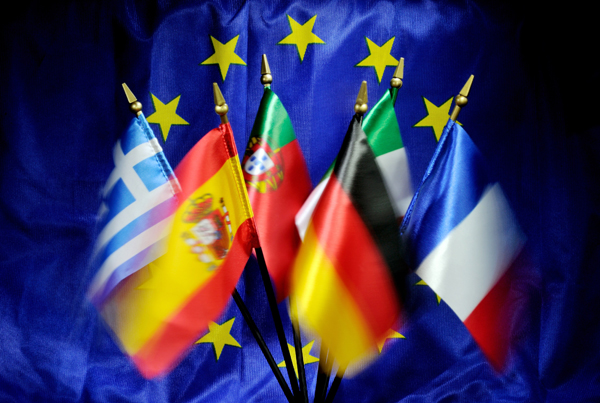The EU’s Nobel Peace Prize: Not Just a Laughing Matter
Ted Bromund /
The news that the European Union—which is in the midst of the most sustained crisis of its history—has been awarded the Nobel Peace Prize is worthy of a laugh—or three.
European defense spending is at post-1945 lows and falling further still; it is not the EU that is keeping the peace in Europe but the lack of a desire to fight anyone.
In a particularly wonderful piece of irony, Norway—home of the Nobel Committee and universally acknowledged as one of the most peaceful places in the world—is itself not even in the EU. And at least in theory, the prize is for activities in the past year; it is not a lifetime achievement award.
Far from encouraging peace over the past year, the EU has done its best—through its mania for defending the euro—to cause deeper recessions across Europe and thereby encourage the rise of radical political parties in nations like Greece.
The idea that the EU is a force for peace is deeply entrenched in the conventional mind of Europe. It is also wrong. The reason Europe is at peace today is because the Second World War ended the old clashes between the great powers of Europe and replaced them with two superpowers: the U.S. and the U.S.S.R. From then on, there would be a major war in Europe only if the superpowers wanted one.
To ensure this peace, the U.S. and Britain occupied West Germany and made it perfectly clear that Germany had lost the war, had committed unspeakable atrocities in doing so, and was now going to be reconstructed so it could never do these things again. The entire West was also deeply afraid of the Soviet Union—making American support even more vital—and the resulting unity was embodied in NATO, which held the line against Communism until it collapsed and then brought a still fragile peace to the Balkans.
If the EU, in its original guise as the European Coal and Steel Community, had won this award in 1955, it would still have been wrong, but it would not have been ridiculous. At that point, European cooperation meant Franco–German reconciliation, an achievement that seemed more historically weighty at the time than it does in retrospect.
But in 2012, there are many more plausible recipients of a Peace Prize, such as Mikhail Saakashvili of Georgia, who, as Heritage expert Luke Coffey points out, took a post-Soviet state, steered it “on a path toward democracy, economic liberalization and Euro-Atlantic integration,” and then gracefully conceded his electoral defeat.
The lesson of the EU’s prize—taken with the three prizes that the U.N. has won in various guises over the past decade and President Obama’s award in 2009 for promising to be more multilateral—is that the Nobel Committee, like a lot of elites, think that the way to promote peace is to diminish national sovereignty and the democratic control of politics by relying on supranational institutions of regional (or global) governance.
The problem with these institutions is that they are frequently unpopular, ineffective, or both. The response of the elites is to do what they can to improve the image of the supranational institutions by doing things like giving them lots of prestigious prizes.
So sure, laugh at the Nobel Committee for giving the prize to the EU, and laugh at the EU for believing that it merits the award. But what is at issue is the future of national sovereignty and democratic governance—and that is no laughing matter.

